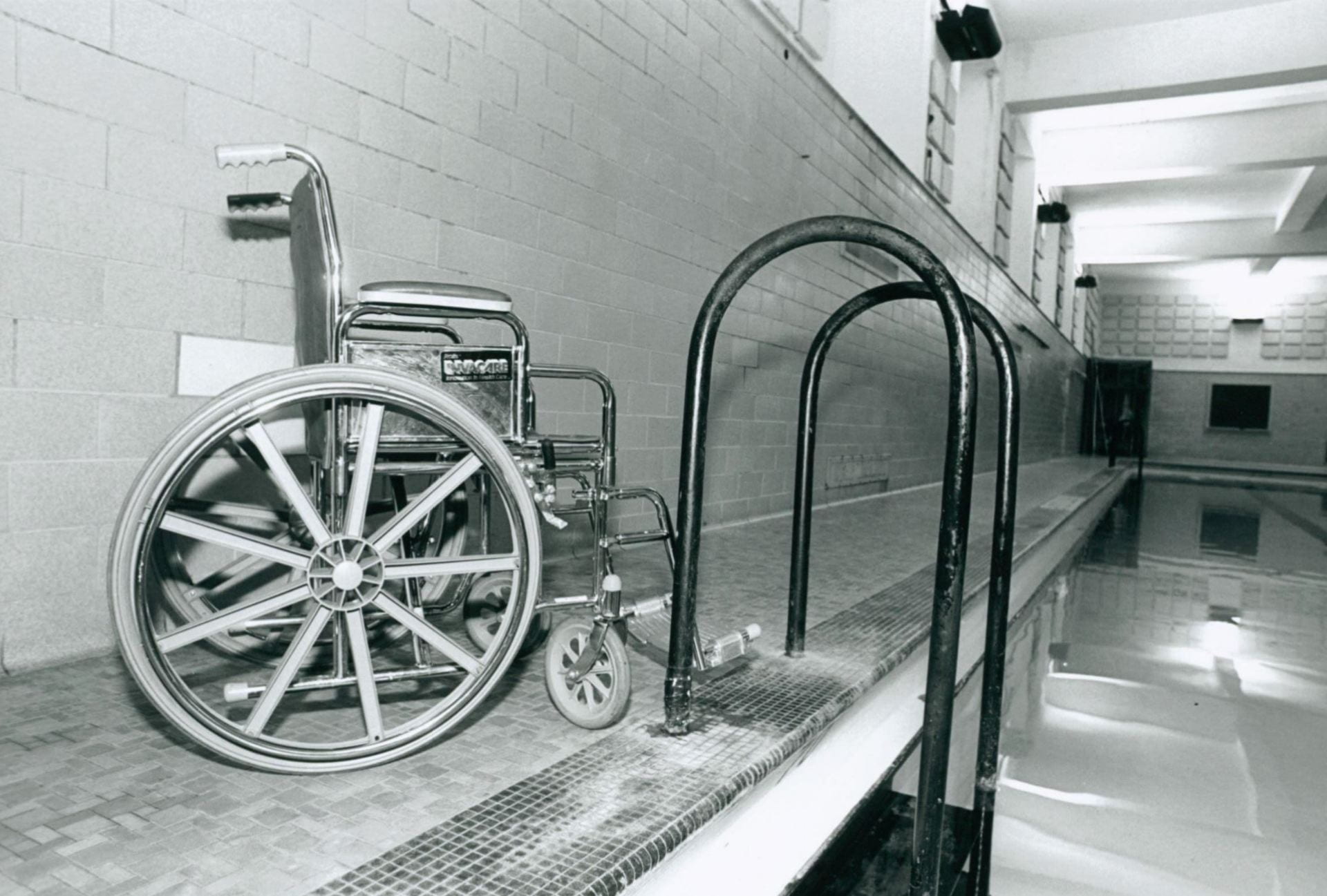Welcome: A Guide to the Virtual Exhibition
Celebrating the ADA: The Legacy of Disability Rights & Lived Experience at Penn State is a digital exhibition that explores the first 100 years of national disability rights legislation and movements’ impact on the Pennsylvania State University community. This exhibition is the result of a February 2020 conversation between University Libraries and Student Disability Resources, seeking to enhance cross-campus collaboration in building awareness and providing support to the Penn State community through the recognition of the 30th Anniversary of the Americans with Disabilities Act on July 26, 2020. The global spread of COVID-19 and transition to a remote work environment made producing a physical exhibition impossible, so a shift was made to an online environment. This virtual exhibition features digitized student newspaper articles gathered from the Pennsylvania Newspaper Archive and digitized materials from the Eberly Family Special Collections Library to highlight the University community’s awareness and efforts towards accessibility.
In June 1920, US President Woodrow Wilson signed the “Smith Fess Act” (also known as the Civilian Vocational Rehabilitation Act), which expanded vocational rehabilitation opportunities and services to include, in addition to World War I Veterans, all Americans with disabilities. In the 70 years following the Smith Fess Act, a multitude of legislative actions were adopted that focused on recognition of the civil and employment rights of those with disabilities. The passage of The Americans with Disabilities Act (ADA) in 1990 criminalized discrimination against individuals with disabilities in all areas of public life, including jobs, schools, transportation, and all public and private places that are open to the general public. The ADA is a civil rights law intended to ensure that people with disabilities have the same rights and opportunities as any other individual. The civil rights protections of the ADA for individuals with disabilities are similar to those provided to individuals on the basis of race, color, sex, national origin, age, and religion. Learn more about ADA here.
This exhibition invites viewers to simultaneously reflect on the legacy of disenfranchisement and marginalization in the US toward individuals based upon “ability” that encouraged attitudes and bias supportive of exclusion and denial of opportunities with historical and present advocacy and activism to shift environments, cultures, and climates to prioritize the needs and rights of individuals with any disability. The hope is that individuals and researchers can utilize these sources, thematically organized to reflect historical national context as Origins of Advocacy (1920-1969), Activism and Seeking Equality (1970-1989), The First 30 Years of the ADA (1990-1999), ADA in the 21st Century (2000-2010) and ADA Now (2011-2020), to foster and sustain discourse on diversity, equity, and inclusion as it relates to individuals with different visible and invisible abilities.
This exhibition is designed to let you visually peruse items in chronological order and read more about the ones that interest you. Additionally, the items exhibited here have been loosely organized around some core topics that emerged in curating the exhibition. These include:
Attitudes and Awareness, highlights efforts to raise awareness and shift attitudes about accessibility issues and disability rights
Compliance and Services, focuses on ways in which Penn State and other institutions implemented programs and services to support academic and professional success for persons with disabilities
Legislation and Advocacy, the legal framework established to protect disability rights, as well as the movement and efforts that led to their passing
Physical Accessibility, largely focuses on the physical infrastructure at Penn State and its development to become more accessible to persons with disabilities
Student Activism, features Penn State students who have advocated for disability rights on campus
All materials, except where noted, are held in the Eberly Family Special Collections Library and are available to consult in the reading room when we reopen to the public.
As part of the celebration of ADA’s anniversary, we encourage visitors to spread the word and use #ADA30, #ThankstotheADA, and #ADAanniversary on social media.
Image: Physical Plant series, Greg Grieco photographs, 07488
See more digital projects and exhibits from the Eberly Family Special Collections Library here!
